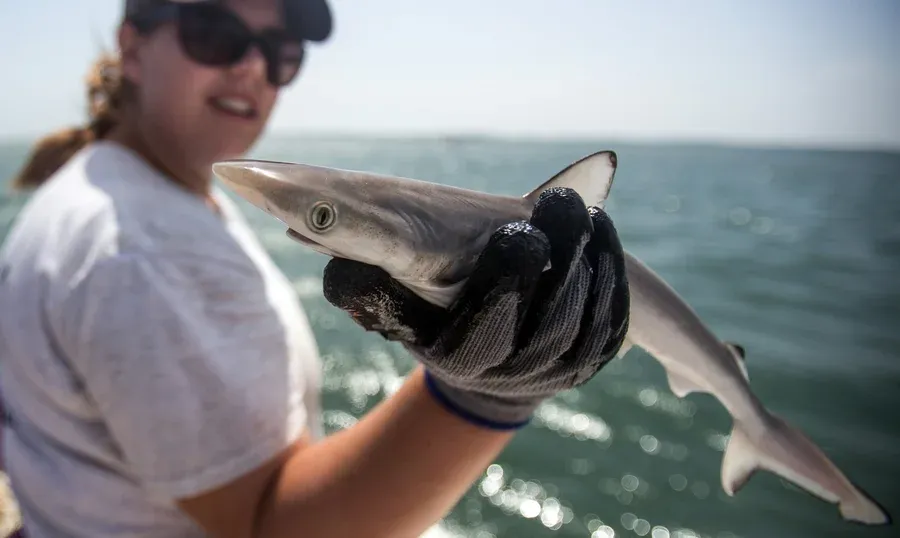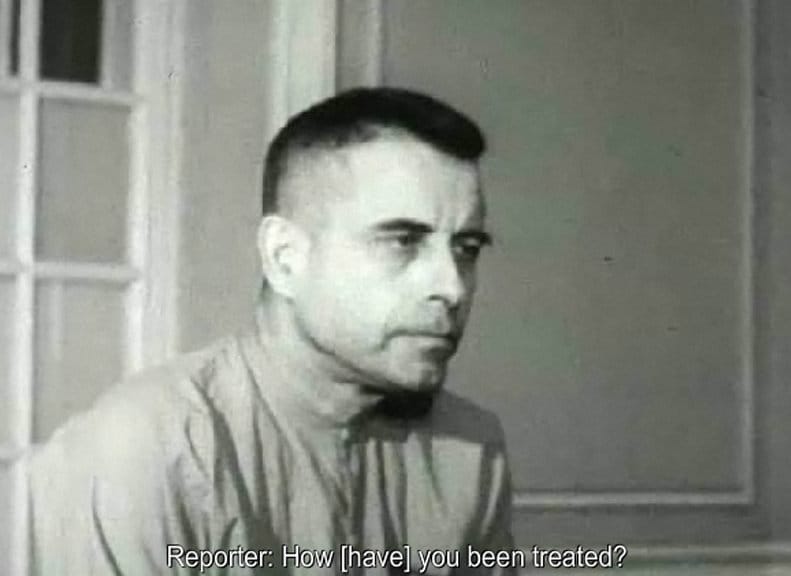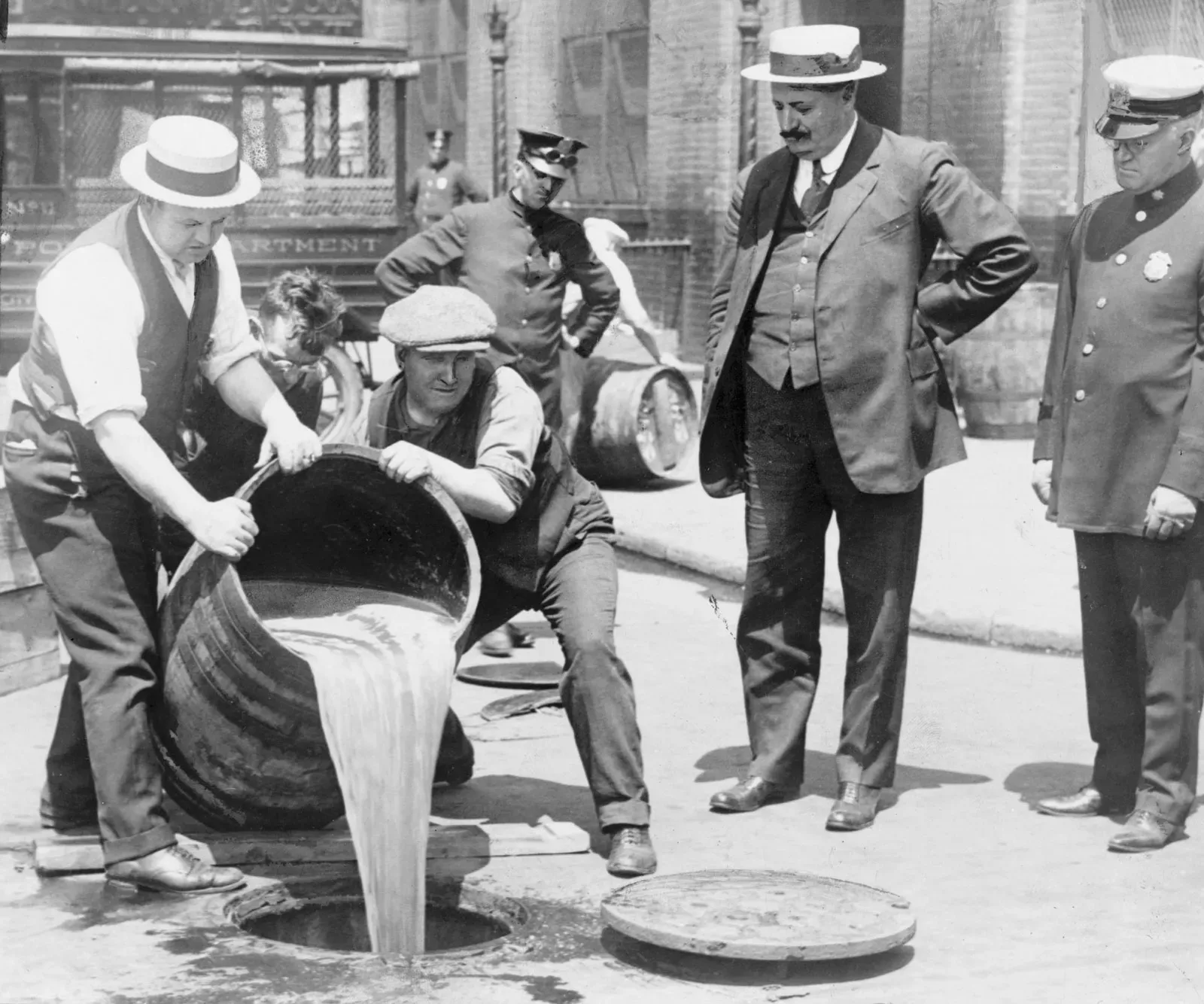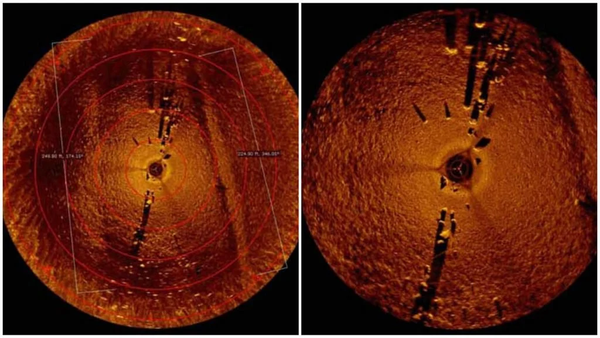Britain planned to make Hitler docile by giving him estrogen

From The Week: "Though the Allies considered some highly inventive schemes to beat Adolf Hitler, few are more bizarre than an alleged plot to make the Fuhrer lose interest in world domination by secretly drugging him with female sex hormones. Cardiff University professor Brian Ford says he uncovered the plan while reviewing recently declassified documents for his new book, Secret Weapons: Technology, Science, And The Race To Win World War II. British spies figured that if they could lace Hitler's food with estrogen, over time he would become less cruel and aggressive, Ford says. The idea was to "feminize" Hitler, and make him behave more like his sister, Paula, a "mild-mannered secretary." The Brits were encouraged by then-recent research into the effects of sex hormones. "There were agents who would be able to get it into his food."
Scientists say sharks caught off the coast of Brazil have tested positive for cocaine

From Scientific American: "Sharks swimming off the cost of Brazil have something a little startling coursing through their systems: cocaine. The drug had never previously been found in wild sharks. But that doesn’t mean these fish are unique; scientists just hadn’t previously tested any shark for coke. The effort was a slam dunk, with the 13 sharks that were examined all testing positive for the drug in their muscles and liver, according to a new study. What this means for the sharks is an open question, say the study co-authors Enrico Mendes Saggioro and Rachel Ann Hauser-Davis. No one has ever studied the behavioral or physiological impacts of cocaine in sharks, Hauser-Davis says, but her ongoing research on environmental contamination in these apex predators suggests the notorious drug is only one of the animals’ worries."
A Navy pilot captured by the North Vietnamese blinked a call for help in Morse code

From Futility Closet: "Captured by the North Vietnamese in 1965, Navy pilot Jeremiah Denton was forced to participate in a propaganda interview to be broadcast in the United States. Pretending to be blinded by the spotlights, he began blinking — seemingly random spasms and tics. He answered interrogators’ questions with a trace of defiance, knowing he would be beaten again and again, but hoping that America would detect his secret message in Morse code. He blinked the word “T-O-R-T-U-R-E” — alerting U.S. Naval Intelligence for the first time that American prisoners were being tortured. In his Investigator’s Guide to Steganography (2003), Gregory Kipper notes that captured soldiers would also sometimes use hand signals to transmit messages during photo ops; “often, these gestures were airbrushed out by the media.”
(Editor's note: If you like this newsletter, please share it with someone else. And if you really like it, perhaps you could subscribe, or contribute something via my Patreon. Thanks for being a reader!)
Bill Gates has a McDonald's gold card that gives him food anywhere in the world for life

From Yahoo: "Few perks in fast food are as elusive and sought-after as the McDonald's Gold Card, which grants its holder free meals. However, the benefits of these cards can vary. While some are limited to local venues, others, like the one Bill Gates has, allow him to eat for free at any McDonald's globally. Warren Buffett, another notable recipient of this privilege, discussed his own McDonald's Gold Card during a 2007 CNBC interview, revealing the more localized nature of his card. During an interview with Becky Quck, Buffett showed what was in his wallet. "And, ah, here we have my McDonald's card which lets me eat free at any McDonald's in Omaha for the rest of my life. So that's why the Buffett family has Christmas dinner at McDonald's. It explains a lot of things," he said.
The US government poisoned alcohol during Prohibition with deadly consequences

From Slate: "It was Christmas Eve 1926, the streets aglitter with snow and lights, when the man afraid of Santa Claus stumbled into the emergency room at New York City’s Bellevue Hospital. Santa Claus, he kept telling the nurses, was just behind him, wielding a baseball bat. Before hospital staff realized how sick he was—the alcohol-induced hallucination was just a symptom—the man died. So did another holiday partygoer. And another. As dusk fell on Christmas, the hospital staff tallied up more than 60 people made desperately ill by alcohol and eight dead from it. Within the next two days, yet another 23 people died in the city from celebrating the season. Doctors were used to the symptoms of alcohol poisoning, but this outbreak was different. The deaths, as investigators would shortly realize, came courtesy of the U.S. government."
Some scientists think this unusual star system is evidence of extraterrestrials

From Discover: "In 2016, word came out about the discovery of a downright strange astrophysical object, somewhere in the constellation Cygnus. Citizen scientists had been combing through the data from four years of NASA's Kepler mission when they encountered the star, officially named KIC 8462852. And it was an oddball. It randomly dimmed, like a flickering lightbulb, and could stay that way for several days. It fluctuated intensely and erratically, sometimes dropping up to 22 percent in brightness. “Stars just don’t do that,” says Tabetha Boyajian, the astronomer who led the ensuing scientific investigation into the findings. KIC 8462852 – better known as Tabby’s Star, after Boyajian – continues to befuddle citizen scientists and astronomers alike. While researchers have thrown numerous theories at the wall, some of which have partially stuck, they’re still searching for one hypothesis that explains everything."
A paraplegic man walks with the Olympic flame thanks to an exoskeleton
Kevin Piette, paraplegic since an accident, made history today by carrying the Olympic flame with his exoskeleton! 💪
— Kevin W. (@Brink_Thinker) July 23, 2024
pic.twitter.com/oejQHQRAwG
Acknowledgements: I find a lot of these links myself, but I also get some from other newsletters that I rely on as "serendipity engines," such as The Morning News from Rosecrans Baldwin and Andrew Womack, Jodi Ettenberg's Curious About Everything, Dan Lewis's Now I Know, Robert Cottrell and Caroline Crampton's The Browser, Clive Thompson's Linkfest, Noah Brier and Colin Nagy's Why Is This Interesting, Maria Popova's The Marginalian, Sheehan Quirke AKA The Cultural Tutor, the Smithsonian magazine, and JSTOR Daily. If you come across something interesting that you think should be included here, please feel free to email me at mathew @ mathewingram dot com



